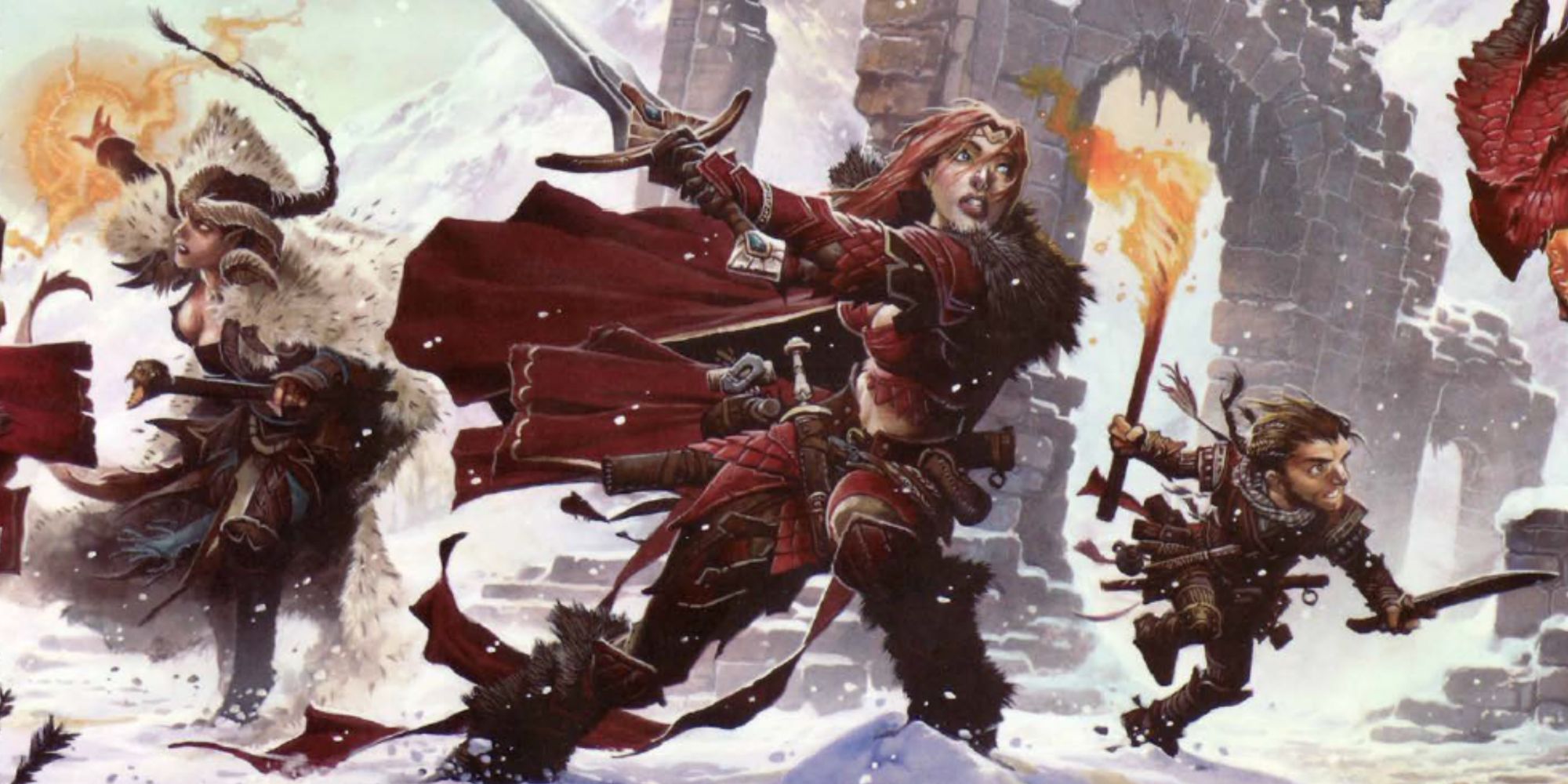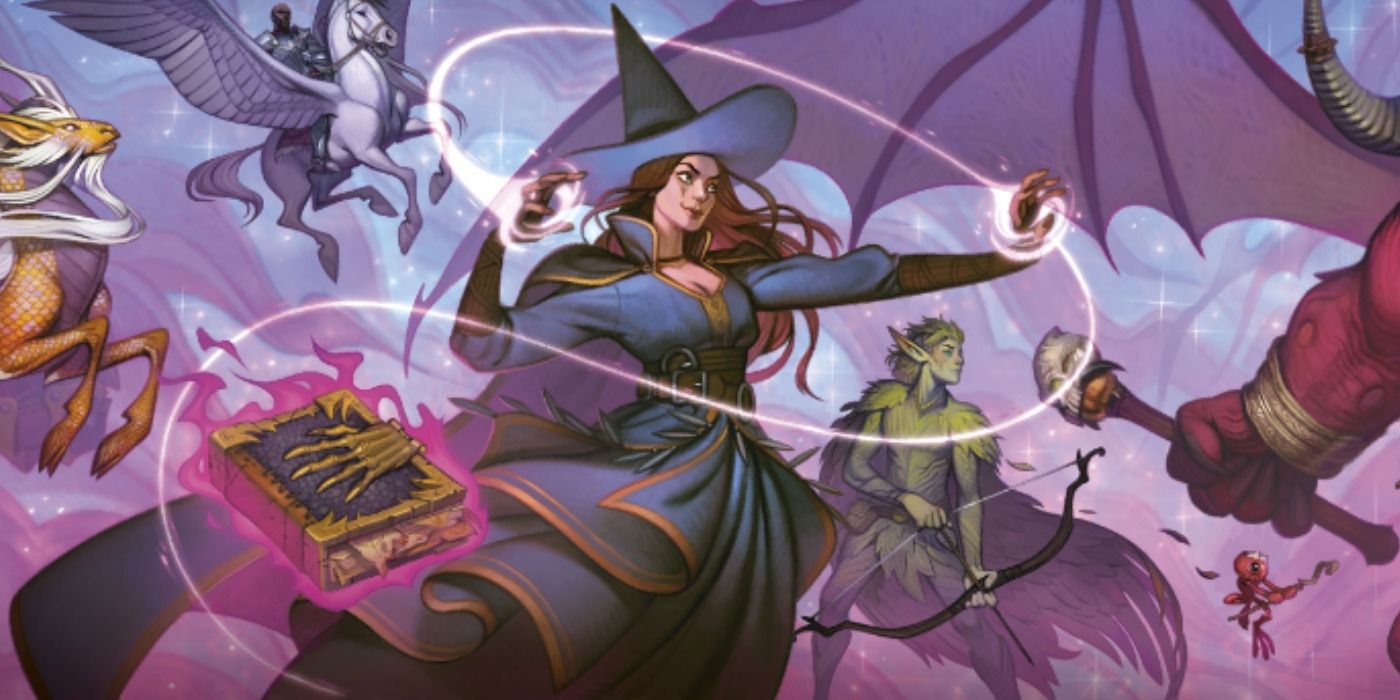The current edition of Dungeons & Dragons has two types of level progression systems that most groups use: milestones or XP. The official D&D campaign books offer options for both systems, giving the DM and the players the choice of which they want to use, but D&D groups that use homebrew campaigns will have to decide which one is best for their game. Each system has its own merits and is a better fit for certain play styles, with milestones being better for groups that like to keep things simple, while XP offer a more thrilling experience for games with a lot of combat and dungeon exploration.
The concept of XP began in D&D and it was the standard rule system used for many years. The players would earn XP from defeating monsters, completing challenges in a dungeon, and even when finding treasure. The XP system was so popular that it eventually became a mainstay of video games, where it's arguably a better-known concept. There are countless video games that offer XP systems, where points are granted automatically for completing tasks. D&D has had issues with monsters not being optimized properly - a recent example being Monsters of the Multiverse making certain monsters stronger - leading to groups being wiped out, or them steamrolling the enemy for easy XP. D&D 5e has fixed many of these issues, but as more official material gets published and altered, there are still changes being made.
The current edition of D&D - fifth edition - offers an alternative to the long-standing XP system, which is used by many groups around the world. As with many game mechanics used in Dungeons & Dragons, there is no clear-cut better choice between the two systems and it comes down to preference and gameplay style. D&D 5e is great for giving players the leeway to create the games that they want without taking anything away from the core experience, whereas the older, different editions of Dungeons & Dragons could be quite strict about enforcing their progression system. D&D 5e has both milestones and XP for its progression system, and DMs should decide which one they wish to use early on, in order to fit the kind of game they want at their table, and avoid the hassle of trying to convert between the two.
D&D's Milestone System Is Simpler & Better For Low Combat Games
The milestone system in D&D involves players leveling up at specific points in the story, rather than gaining XP from performing specific tasks. The official D&D campaigns usually provide a guide for when the milestones are hit, such as having players hit level 2 once they complete the Witchlight Carnival and find an entrance to the Feywild in The Wild Beyond the Witchlight adventure, even though they may not have had any combat encounters during this section of the game. This isn't always an ideal choice, as a campaigns like Curse of Strahd is akin to an open-world video game, so setting the milestones beforehand could lead to players getting lots of levels in quick succession, or being underpowered for a good chunk of the campaign. For homebrew games, the DM might decide to use milestones every few sessions, for specific locations the players manage to reach, or they can tie it to important story points.
One of the main reasons to use the milestone system is that it simplifies things for the players and the DM. Milestones mean that no one has to keep track of XP and players won't just suddenly level up after fighting a group of monsters. It's especially useful for D&D groups that play online or have an uncertain number of players, as life can often get in the way of D&D, and some games might have more players than others, and the faces around the table could change every week. The milestone system ensures everyone is at the correct level and the DM can plan things accordingly. It also means the DM can avoid the fiddly math needed to divvy up XP after an encounter.
The milestone system is especially useful in games with little combat, as these encounters are typically the most common reason XP is awarded. There are some D&D groups that prefer to focus on roleplaying and they keep the minutia of the rules to a minimum. These groups will still have combat from time to time, but they rarely explore dungeons or get into tavern brawls. D&D groups focused on roleplaying benefit a great deal from the milestone system, as they can have a progression system tied to their own deeds, without needing to work out how they translate into XP.
D&D's Experience Point System Is Better For Combat & Exploration Campaigns
The D&D classic XP system is a better fit for games centered around combat and exploration. One failing of the milestone system is that it takes a lot of the interest out of combat encounters, especially random ones that play out while traveling from one location to another. Receiving no XP can be rather anticlimactic, especially if it was a hard-fought victory. XP ensures that there is always a reward for defeating enemies, solving puzzles, bypassing traps, using stealth to avoid danger, roleplaying out of a tense situation, getting around D&D's worst imbalances, or just doing something out of the box that impresses the DM.
XP are there to create a tangible feeling of reward for the players whenever they do something heroic. Milestone groups can simulate this with inspiration points, but those are an expendable resource that acts as one-shot boosts. The milestone system doesn't quite match the feeling of being given lots of XP after beating a boss monster and gaining a level in the process. There is a bit more math involved with the XP system and it can make balancing adventures a little trickier for groups that have lots of players, but D&D parties that stay on track together with the standard 4-5 players that regularly show up to games will benefit from the Dungeons & Dragons experience point system.



